interview by Michael McCarthy
Have you ever read a book that was so haunting you’ve never been able to get it out of your head? One that stays with you that you can’t stop thinking about? That just randomly pops into your head at the strangest of times and lingers for days whenever it does? Most of the books that stay with me like that are so popular that I don’t even need to name the authors for you to know which books I’m referring to. Running with Scissors. A Million Little Pieces. The Shining. In Cold Blood. The Exorcist. The Catcher in the Rye. On the Road. All of which are considered classics.
Well, there’s one book that has lingered in my mind even more than these and, perhaps shockingly, it’s not even particularly famous. That book is The Elementals by Francesca Lia Block. It’s the tragic story of a young woman whose best friend goes missing, prompting her to set out to find her. Or at least find out what happened to her. At all costs.
Like any great mystery, The Elementals makes you yearn to uncover the truth as much as its protagonist. Believe me when I say you’ll be dying to know what happened. In all seriousness, I remember having to double up on my prescription antacid when I was reading it because the suspense gave me such a burning sensation in the pit of my stomach. That’s how deeply affecting I found its lyrical pages were on me. The irony is that it’s one of the most beautiful books I’ve ever read in spite of its gloomy vibe. Needless to say, it’s both a page-turner and a book you’ll want to savor. To that end, it took me a month to read it because I chose to sip it slowly in spite of how brutally suspenseful it was. I just didn’t want it to ever end, although I think I was also afraid of how it was going to do so and wanted to delay finding out. If you haven’t read it yet, you should read it now before it inevitably becomes a feature film and the best seller it deserves to be so you can be the one to tell your friends about this wonderful book they simply must-read.
The following interview — my third with Block — doesn’t focus on The Elementals, which we previously discussed here, but I never fully conveyed what an amazing work it is before and couldn’t let another opportunity to do so pass me by. As much as I cherish Block’s other books, I do have to close by stating that The Elementals is, in my opinion, her veritable magnum opus.
The book we do talk about in this interview is Block’s recently released poetry collection Dead Girls, which features poems based on mythology and fairy tales, two things which have long inspired her work. If you’ve ever been a fan of her rhythmical prose then I can’t recommend it enough.
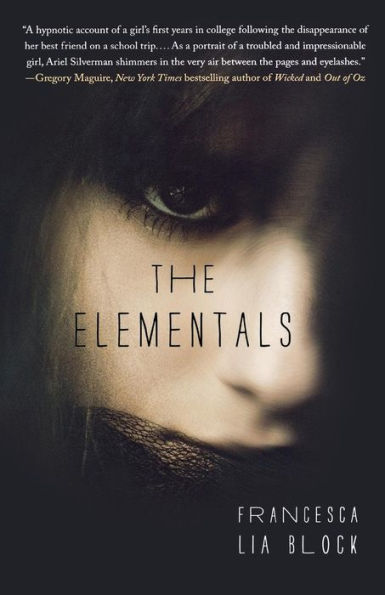
MM: First of all, I know you have some upcoming classes and a retreat coming up. Why don’t you tell us about those to start off?
FLB: I have two retreats coming up in L.A. Weekend long retreats. I just added a second because the first sold out. And they’re a combination of writing workshops and guest speakers. I have some publishers and an agent on the first one then I have producers, a screenwriter, a TV writer, and screenwriting teachers on the second one and then in both of them, I’ll have meditation and a tarot card inspiration session. They should be a nice way to meet people and connect and focus on the writing. And that includes me reading some of their pages. And then I have other classes where we just workshop weekly. And I teach at UCLA Extension and I’ll be teaching at Antioch again in the summer. And now and then, and this is probably the most relevant for your readers, I have an online class that you don’t have to be in any one space at any particular time. It’s just lessons every week. And then you workshop weekly with your group. So, that should probably be acceptable for most people.
MM: And I can recommend that because I took one of them.
FLB: [Laughs] Yeah, that’s right.
MM: I wish I was still out in L.A. so I could do the retreat. That sounds spectacular.
FLB: Thanks, yeah. I’m trying to do more so people have time in advance to sign up.
MM: So, you have a new book out, a collection of poetry called Dead Girls. Were these poems all written with the intention of publishing them together in one collection or were they written at various times and later compiled together for this project?
FLB: Well, I started the poems a long time ago. I was doing a blog, which I’ve taken down now, where I would put up a poem – I don’t remember how often, but quite frequently, that I wrote quickly that were based on fairy tales. So, some of the poems in the collection are from that, revised somewhat, but they’re based on the fairy tales, which I’ve always been inspired by. Then I added. I needed more so I did some on myths and some on fables. They were put together over a fairly long period of time if you count the original poems. I’ll usually have one idea and write it and then if there’s not enough kind of come up with the rest to supplement it. But the original idea is often a more organic process.

MM: Were any of them published anywhere besides the blog?
FLB: No, I didn’t send them anywhere. So, they’re all original.
MM: How often do you write poetry these days?
FLB: Well, I just finished my MFA and I was taking some poetry as my second genre part of the time. So, I wrote a lot when I was doing that. And I have a group I’d like to publish at some point once I fill it out a bit. But since school, I’ve been focusing on my fiction entirely.
MM: What are you working on right now?
FLB: I’m really excited about my novel. I’m about to send it out. It’s called Sea of Bones and it’s about a woman who lived in the Salton Sea area of the desert area and she wakes one morning to find her boyfriend is missing and goes searching for him. So, it’s kind of mythic also. A bit dark. Quite a bit dark. [Laughs] It’s really my pet project at the moment that I’m really excited about.
MM: Sounds great.
FLB: Thank you.
MM: Would you say you generally find writing poetry or novels more difficult?
FLB: I think they’re different. I think poetry is harder than people think it is. They think it’s short and you can do it quickly. But to really polish the poem you need to look at every word. Every cadence. Every image. I think it has to stand on its own under scrutiny more in some ways than a page from a novel or a paragraph. So, it’s nice to apply that same care to fiction. It just takes a lot longer. If you’re putting the same standard to both. Yeah, you’d think a novel would be harder, but most people don’t. Because it’s not as essential in a way to have every word or every image stand on its own.
MM: I have some questions about some of the specific poems. In Changeling, you write about a hotel lobby with a scratchy carpet that’s red and gold with wood-paneled walls that smell of booze and smoke. Was this a real hotel you were recalling or is it purely fictional?
FLB: You know, that’s a really good question. I wrote that one early on and when you say it now I think about American Horror Story. I don’t think that’s what the source was, but it definitely comes to my mind. But there’s one hotel in Culver City that I love, the Culver Hotel, that I write about frequently. But I don’t think it was that necessarily. To be honest, I don’t remember where that image came from.
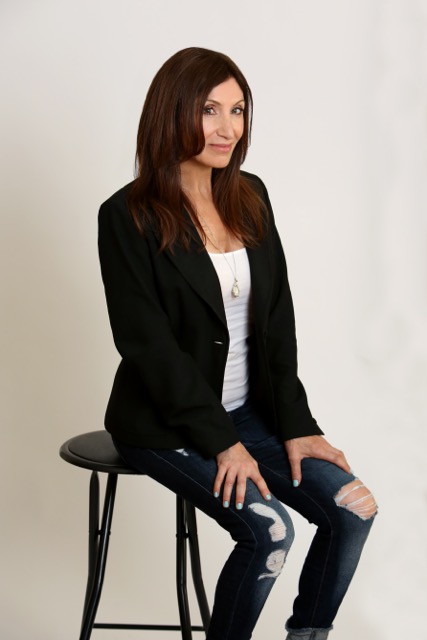
MM: One of my favorites in Handless, which I really liked because it was this little poem, but you put footnotes elaborating on the stories about the things she did and that happened to her and so forth. How did that one come to be written that way?
FLB: I don’t remember how I came about that. I know that I wanted to expand on some of the ideas. I really don’t recall what made me use the footnotes, but the poem was obviously a much simpler structure, in a way, and that was a way to maintain that simple structure and still flesh out the backstory of the poem. I have footnotes and I have parentheses in these poems and I think there’s a sense of a telling a story but then whispering a secret story behind it or through it. My thesis at school is on Gothic fiction and how Gothic fiction is related to fairy tales and how fairy tales have a lot of hidden goddess references in them as well as a lot of Gothic fiction has written goddess references. When I did my talk, I ended up not talking about the goddess of mythology because I wanted my talk to be a little more accessible to people who aren’t interested in that. I instead talked about conflict as a way to focus my lecture and help people and their craft and their writing. But, to me, the message underneath that was through these stories of trauma or conflict a certain transcendent message can come across, which, to me, is equivalent to the goddess. And I think the goddess is hidden in these poems, too. So, maybe that’s what I was unconsciously doing with some of those asides without realizing it because I hadn’t yet written the thesis or really thought about it in a deeper way.

MM: Baby Yaga seems to be from the point of view of a young woman who was abused by other girls and killed them. In fact, you write, “Yes, I killed them / and used their skulls for lamp posts.” What can you tell us about this one?
FLB: That was based on a fairy tale about an old witch who does that. A witch who lives in a house of chicken feet. It’s quite close to the original, actually. That theme of abuse is actually quite common in fairy tales. Or at least my interpretation of them.
MM: Were you ever bullied?
FLB: Yeah. Oh, yeah. Junior high, for sure. I think it’s pretty common. Well, maybe it’s less common nowadays. Actually, I think it’s having a resurgence, unfortunately, because of what’s happening in the White House maybe. On the other hand, maybe there’s more awareness around it, too, perhaps partly for that reason, I hope. And the reaction to it. But, yeah, definitely.
MM: On Twelve Dancing Princesses, you write about girls writing secrets on walls with pens. Did you ever divulge another girl’s secret on a wall yourself?
FLB: [Laughs] Um, let me think about that. I don’t recall that, no. I would say I would put my own, not anyone else’s.
MM: During one of our previous interviews when we were talking about The Elementals you said you didn’t think you could write young adult anymore. Do you still feel that way?
FLB: Yes.
MM: Why do you think that changed? Just part of getting older or…?
FLB: Well, it’s partly that. But for a long time, I wasn’t even thinking that I was writing it but it was being published that way, which I was very fortunate to have. But at a certain point, things shifted and I really would like to write about older characters and be published with that now. And I think it was a natural sort of evolution. I think the market has also changed, but I don’t really keep up with the market that much. But it does seem like I had a lot of freedom to do older characters and dark themes and more risky certain things. Now I don’t know now if that’s the same, but I’m more interested in more poetic adult fiction.

MM: Have you read the book Suicide Notes from Beautiful Girls?
FLB: No.
MM: The reason I ask is that it’s very similar to The Elementals because both books are about girls who’ve lost a friend who’ll stop at nothing to find them and end in tragedy.
FLB: Oh. Wow. It sounds good.
MM: I think you would really like it. Although I also wonder if you would question whether the author wasn’t heavily inspired by you.
FLB: [Looks it up.] I can see it. It looks interesting. It looks good.
MM: I know you shattered your ankle last year, which I can kind of relate because I had a grade three ankle sprain that had me in a cast and using a walker for four months a few summers back. How did you shatter your ankle?
FLB: Oh, I fell. Yeah. And, unfortunately, I fell yesterday. I didn’t break anything, but I’m in a lot of discomfort. It’s been pretty brutal, but I’m in physical therapy and getting better so there’s that. But I don’t want to talk about it. [Laughs] If I hadn’t fallen yesterday, I don’t think I would mind. But I’m OK. It’s pretty hard.
MM: Your name was mentioned in the first episode of the new season of the Netflix series You. Do you know the person who wrote that episode?
FLB: Sera Gamble. I do know her. We’re old friends. And I was very happy and honored that she mentioned it. She did it specially. She put me in the company of Joan Didion and Raymond Chandler. I’ve never had as much response to anything as that mention. People must watch that show a lot because I heard from almost everyone after that, which was great. And I’m a big fan of Sera.
MM: Do you watch many series?
FLB: I keep trying to find ones I love and I’m not very successful. I love Fleabag. I love Game of Thrones. And they’re not even that recent, but those are the ones I’ve found the most interesting. Are you a Buffy fan? Did we talk about that?
MM: Yeah, I am. But I don’t think we’ve talked about it.
FLB: I must have read that somewhere. I knew that. Did you ever read the Kelly Link short story Magic for Beginners?

MM: No, I’m not familiar with her.
FLB: Kelly Link is a writer I think you’d like. One of the books is Magic for Beginners. It’s a book of short stories and one of them is about a show that’s kind of like Buffy The Vampire Slayer. They’re sort of surreal stories. It’s really, really great. And I studied creative writing also in school and I did a paper on a lot of movies but also some TV shows. I did something called The Mad, The Bad and The Buffy, which was about Mad Men, Breaking Bad and Buffy The Vampire Slayer. So, those are three shows I like as well.
MM: You’ve experienced one pleasure that most writers never get to experience in that your work has been translated into a dozen-plus languages. What are your most translated books and what books have done well abroad?
FLB: You know, it’s funny because the way the process works I don’t really know the figures because they’ll sell the books outright to the publishers. So, you don’t see sales figures. But I would say that probably Weetzie Bat is the most translated and I don’t know where it does best. I would imagine in Germany and France. I think we did a recent French one. Japan, maybe, which is really fun and exciting. But I would say probably those three that I mentioned have done the most translations of my various books.
MM: Is there a French version of The Elementals?
FLB: No, that would be so cool. But, no, not yet. Hopefully, someday.
MM: I’ll have to pick one of the others that’s in French and give it a read because I like the challenge of reading in French.
FLB: It would be fun to see how they did Weetzie Bat and it would be easy. It might be interesting to see how they translate certain words like leaping lizards.
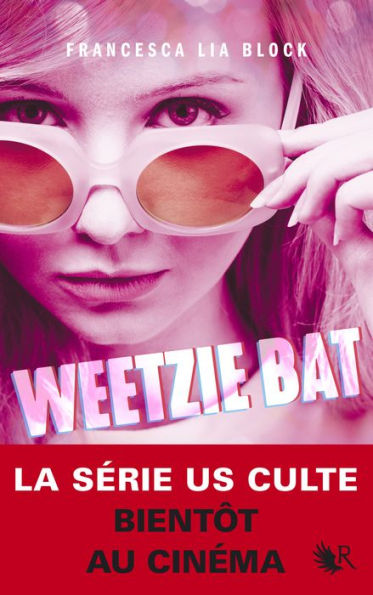
MM: Sure. I’m not fluent, though. I can read and write it much better than I can speak it because they speak so fast.
FLB: Oh, right, yeah.
MM: But even then, I still have to look up certain words and such, so I’m not the most knowledgeable person to critique their translations but when I read something if anything sticks out I’ll let you know.
FLB: Right, right.
MM: In other news, you have a video available now where you talk about the 12 questions you ask yourself before you begin any writing project. Where did the idea to make the video come from?
FLB: I don’t know if you know who Gala Darling is, but she’s a big internet personality and author and an amazing and magical person. She’s been supportive of my work over the years. And I had lunch with her. She moved from New York to L.A. and she does a lot of media of all kinds. I forget if she suggested it or if I said I was thinking of doing some kind of video and she said you should absolutely do it and I was worried that it wouldn’t be good enough. She said it’s very important to just do things even if you don’t think they’ll be perfect and put them out there. Interestingly, that’s how I do my fiction. I’ll create a lot and not worry that it’s not good enough or not perfect but when it comes to other things in life I tend to be more cautious but I thought it was a really good idea to take her advice. And I used her videographer and hair and make up person and I just did it. I just called them and set it up even though I didn’t feel that ready for it. It was fun, actually. I’m really glad I did it. I’m putting a button up on my site where you can purchase it, but it’s not there yet. So, people can write to me through social media or on my website to get it now but it should be on there soon.

MM: Is it available just digitally right now or is it available as a DVD?
FLB: Only digitally.
MM: Was it difficult to narrow down what you were going to say about each of the questions?
FLB: No, because I teach them so frequently that I’ve kind of gotten it down to the most important parts. It was pretty much what I do in any classroom that I teach.
MM: Did you do it spontaneously or did you write a script for it first?
FLB: I did write a little script but I just had that there to refer to in between if I needed. But, again, because I lecture so much on this topic I had pretty much of it already in my mind before we began. It would’ve been a lot harder if it wasn’t something that I wasn’t as familiar with.
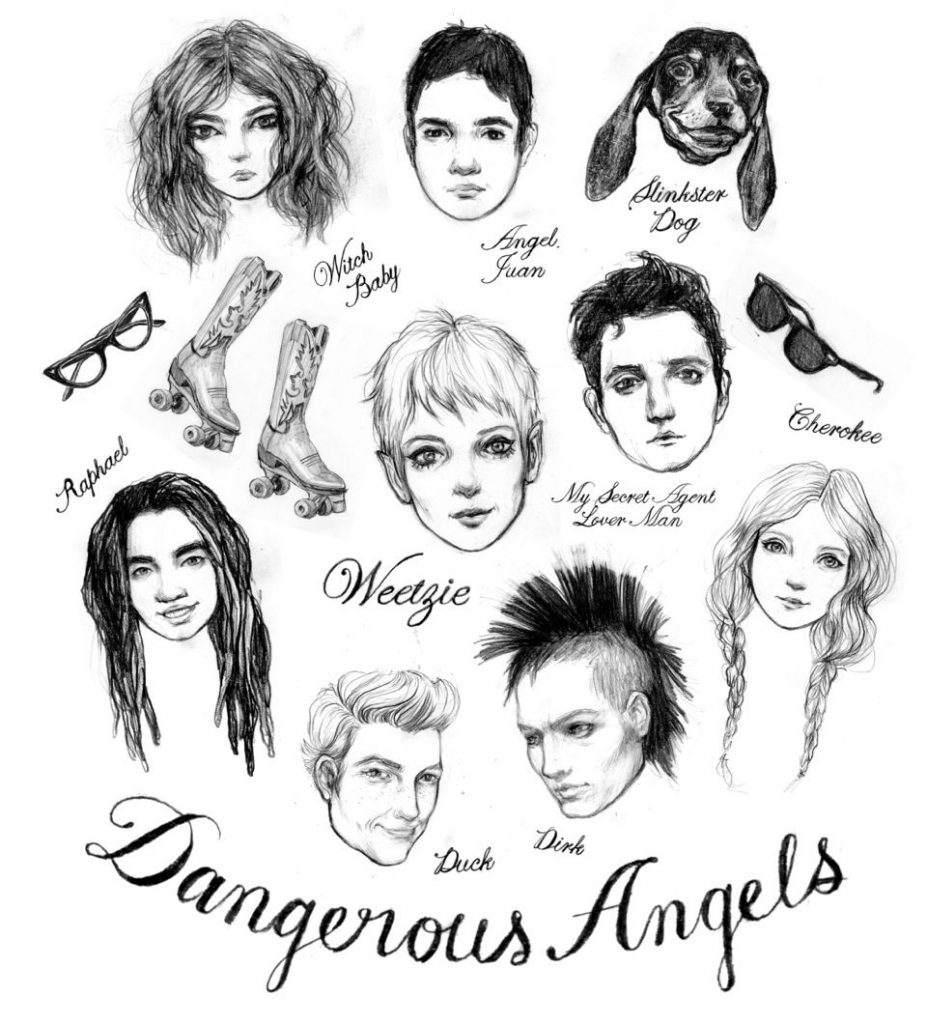
MM: Sure. Now, I know you’ve adapted some of your work, including Weetzie Bat, into screenplays. What other books of yours have you adapted into screenplay format?
FLB: I did The Elementals, which I’m really happy with. I need to find someone to make that. And then I’m also working on Beyond the Pale Motel, but I haven’t finished it yet. I worked with a friend, Laura Lee Barr, on the first draft and I’ve been revising it but I just haven’t prioritized it because there are so many other things. But, yeah, those are the main ones.
RANDOM QUESTIONS:
MM: If any three authors who were deceased could come back and write one more book, who would you welcome new books from?
FLB: Hmm. Wow, there’s so many. Carson McCullers. Shirley Jackson. And Toni Morrison. Maybe I’d also add – no, let’s just stay with those. There are a lot, but yeah.
MM: Have you ever thought about writing a book yourself to put aside to be published after your death?
FLB: [Laughs] No, but today I was thinking I really hope that doesn’t happen with my new book.
MM: Well, let’s hope that doesn’t happen. What’s the last band or solo artist you became a big fan of?
FLB: Oh my God, I haven’t been listening to music so I might be kind of irrelevant. I mean, I kind of had one friend who introduced me to a lot of new music but that was already about 10 years ago. I’ve been listening a lot to old stuff as the playlist for my new book, which is very ’90s music. It’s not set in the ’90s but the music is ’90s.
MM: What might some of that music be?
FLB: Well, let’s see. My usual favorites, PJ Harvey, Hole, Nirvana… Sinead O’Connor. There’s a Johnny Cash remake of “I See A Darkness,” I love that one, too. Those are some.
MM: I know you’re a big David Bowie fan. What are your top three Bowie albums?
FLB: Oh, God. Heroes. Ziggy Stardust. And… Oh, I don’t know. I can’t think of a third one. What are yours?

MM: Mine are Aladdin Sane, Earthling and Outside. So, a couple of them were newer ones.
FLB: Yeah, that’s cool. Aladdin Sane, yeah, well, Diamond Dogs is pretty good, too. I mean, they all are.
MM: The interesting thing about his discography is that you can pretty much find an album for whatever mood you’re in.
FLB: Yeah, for sure. Also very true.
MM: Are you big into streaming music at all?
FLB: No, but that’s just because I’m not in the habit of it because I’m old. [Both laugh] Obviously, my kids do. That’s probably all I would do if I was a kid. Listening. That was my favorite thing. Unfortunately, with some of those great joys of life that you have when you are young, unless you are careful, they can slip away when you’re busy with other things. So, this is a good reminder to stay connected to them.

in a Los Angeles t-shirt.
MM: What are some other things you’ve gotten away from?
FLB: Oh, I was just thinking about music. And dancing to music. I think reading and writing have always been important to me and I’m constantly doing those two because those are my job and that makes it a lot easier to prioritize. But it all feeds the writing, too. Not just reading. Living, too. And, obviously, music is part of that.
MM: Do you listen to music while you’re writing or do you have to have it quiet?
FLB: I don’t have to have it quiet around me, but music I do find a bit distracting. I mean, I do listen to the music as I’m visualizing the book.
MM: I have to have it when I’m visualizing and when I’m writing, but when I’m writing I’m able to just let it fade into the background and I guess the problem some people have is that they can’t let it fade into the background like that.
FLB: Yeah, that’s what happens for me. And then what happens is I will wake up in the middle of the night with a song blaring in my head if I’ve been listening to it. So, it really enters my consciousness. Partially why I don’t listen to music as much. Because of that. It becomes so consuming in that way.
Special thanks to Francesca Lia Block for taking the time to speak with us again!
Visit Francesca Lia Block’s page on Amazon for all her books

Information about Francesca Lia Block’s upcoming classes:
CLASSES
Online Class: Healing Through Writing
10 Weeks
Starting March 23rd for 10 weeks Online
This class will provide a safe space for personal growth and healing, and you will also learn the basics of writing fiction (memoirists and poets also welcome). In Wired For Story, Lisa Cron argues that story was crucial to our evolution, providing templates for survival in a dangerous world. By telling stories, we teach our readers how to navigate the dangers that come with being human, and we reinforce our own strategies for survival.
My twelve questions will help writers tell more powerful stories, hopefully to guide others, and also let us examine our own lives in different ways.
Each week you will receive a mini lecture via email. You will respond to my questions and assignments with 5 double-spaced 12 pt. font pages by the following week and give and receive feedback.
By the end of the course you will have the template to write or revise a longer piece of work. You will also have connected to yourself and to others through the healing power of story.
$525.00
To sign up: https://francescaliablock.us10.list-manage.com/track/click?u=edeac39cef12b16fdac800870&id=be95b7686e&e=8edd6b0f12
Ongoing Sunday Workshop
Culver City
10 Sundays 11-2
Starting March 29th in person (NO CLASS APRIL 5TH)
$550 for 10 double spaced pages per week
Ongoing Monday Workshop
Culver City
10 Mondays 11-2
Starting March 16th in person NO CLASS MARCH 23rd
$550 for 10 double spaced pages per week
email me to sign up and for location
ALMOST FULL
Manuscript Consultation
I will carefully read your manuscript and give you detailed line notes and a global letter. I can also meet with you for one-hour coaching sessions to discuss character, plot structure, setting, voice, theme and publishing options. Contact me for details.
FAIRY COTTAGE RETREAT/SOLD OUT
Friday, March 20-Sunday March 22nd
Culver City
Schedule:
Friday March 20 7-9 PM – Meet and greet, wine/sparkling water and cheese, group discussion of projects and schedule and chatting with special guest, Sarah Bowlin, Agent, Aevitas Creative Management
Saturday March 21
9-10 – Tarot as Inspiration with Aidinha Gaxiola-Karney and FLB
10-11 – Free writing time and individual meetings with FLB
11-12 – Discussion with Olivia Taylor Smith, Executive Editor of Unnamed Press
12-1 – Lunch (bring your own)
1-2 – Free writing time and individual meetings with FLB
2-3 – Discussion with Colleen Dunn Bates, Publisher, Founder and Editor of Prospect Park Books
3-5 – Workshop (may break into groups)
5-6 – Snack and chat
Sunday, March 22 10-5
10-11 Meditation and Breath Work with Jen Becherer
11-1 – Free writing time and individual meetings with FLB
1-2 –Lunch (bring your own)
2-5 – Workshop (may break into groups)
5-6 – Party
Cost $500 includes wine and cheese for three nights, snacks for two days, two inspiration sessions, two talks from editors of small presses, private meetings with flb, workshops with other students, flb will read (without line notes) up to 25 pages of work. You will also receive a video on the 12 Questions (normally $99).
*Schedule subject to minor changes
SOLD OUT BUT ANOTHER ONE COMING APRIL 3-5. The emphasis on this retreat will be on screenwriting/tv writing with guests Lesley Arfin (Girls, Love, Betty) and Liz Lippman of Stampede Productions.
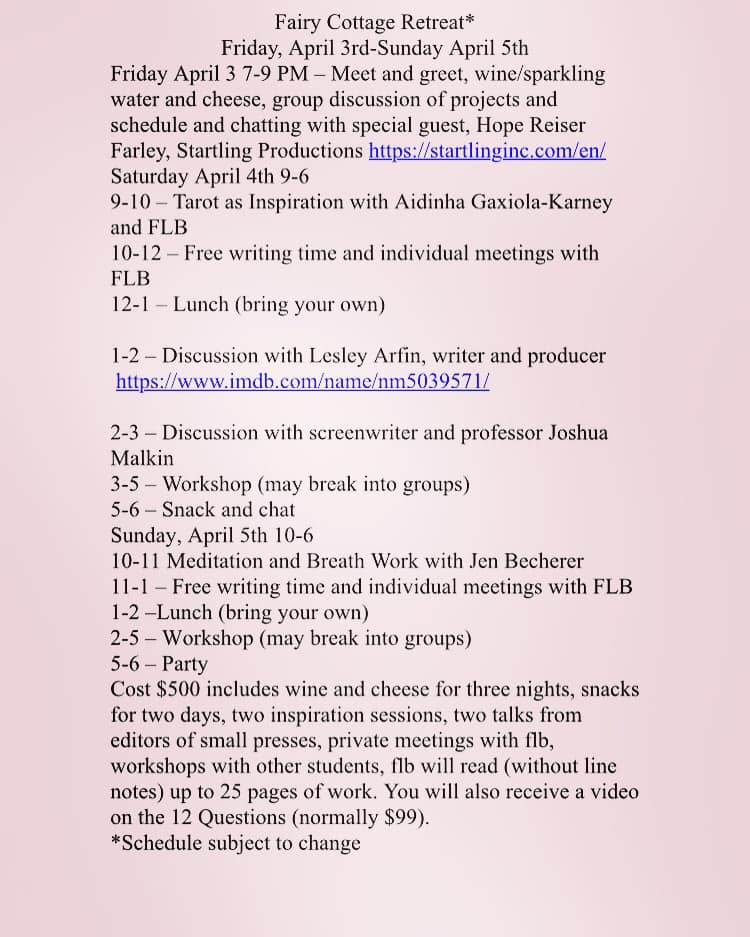
Contact Francesca Lia Block on Facebook for more information about all classes, retreats, etc.

Leave a Reply